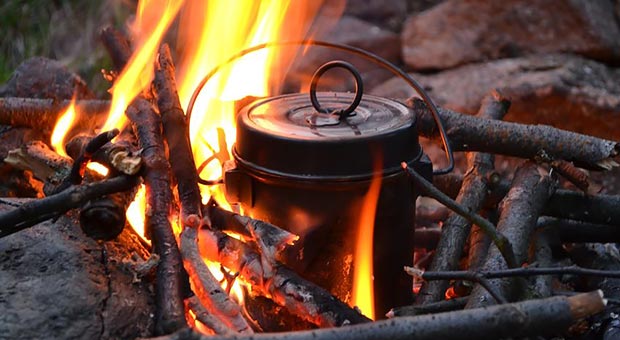
It’s really easy to prepare food right now; you just pull it out of the fridge or the freezer and toss the food in the microwave or skillet. Easy peasy. You have electricity for keeping your food cold, gas or electricity for cooking it, a car to get you to the store and a store to drive to if you need to buy more food. No real skills necessary.
But what if all of that went away?
There are some skills that you need to learn now for making food for survival just in case SHTF. Your methods of preservation and cooking, and even preparing daily meals will change drastically and if you’re caught unaware, you’re going to be in a world of hurt fairly quickly.
Canning
preparationsThis is probably one of the easiest skills to learn though it’s time consuming and requires specialized equipment. Properly canned food will last for years – there are records of food that’s been eaten 15 years after it was preserved, and likely there have been even longer periods.
The basic concept of canning is two-fold. Heat, along with salt or vinegar are typically used as a bacterial preservative, then the canning process seals the “sterile” food into the jar so that bacteria and air can’t reach the food to instigate the spoiling process. Of course, you’re not going to add salt or vinegar to your jellies or fruits, but they’re typically used for vegetable and meat preservation.
Though you’ll can inside on a stove today, you can also do it over an open flame if needed but it will take a TON of firewood so it’s better to can it now and have it in your stockpile if you’re planning to bug in.
Some tips for canning:
Choose fruits and vegetables that are at the peak of ripeness. You don’t want any bruising or bad spots, either.
For meats and low-acid fruits and vegetables, you MUST use a pressure canner to avoid the risk of botulism. This is a wicked bacteria that affects your central nervous system. If your canned food has any bubbles in it when you look at the jar or when you open it, or if the contents blow out of the jar when you open it, DO NOT EAT IT unless you want to put yourself in a world of hurt.
Make sure that all of your equipment is thoroughly clean and free of damage. No chips, cracks or bends. Otherwise, your food won’t seal properly and you’re just wasting it.
Dehydration
Dehydrating food has been used as a preservation method for eons. The concept is simple; (continue reading)

